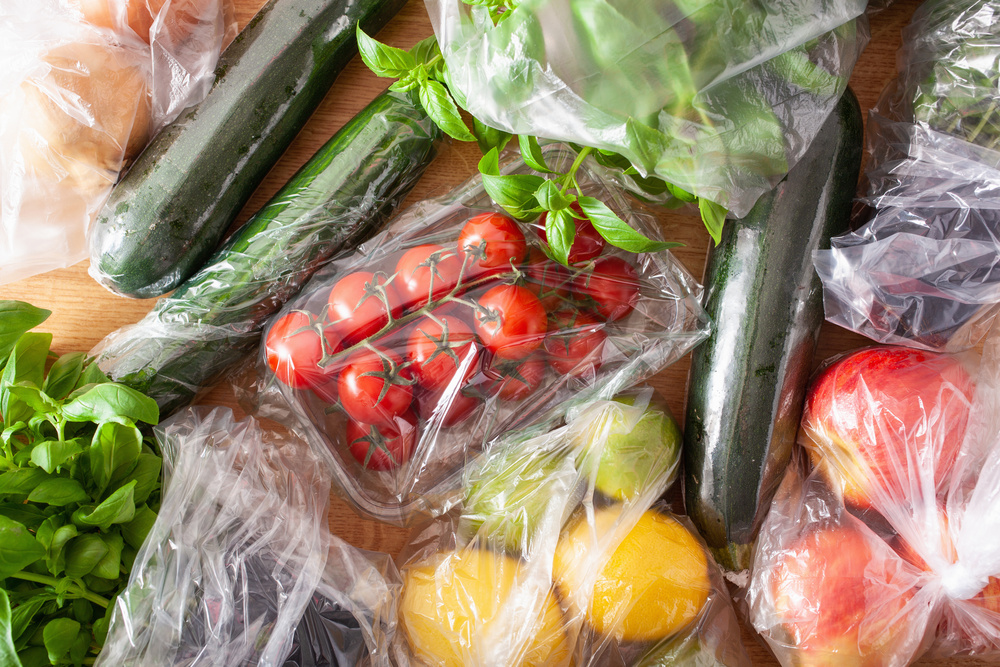Imagine picking up a loaf of bread at the supermarket. Instead of being packaged in a plastic bag, the bread appears to be covered in a thin coat of something you don’t recognize. It is not plastic or paper. Whatever it is, it’s something you have never seen or handled before. What you are looking at is a spray-on bio-based food packaging system.
Researchers at Harvard and Rutgers have been working jointly on a project to develop a bio-based packaging system that could realistically replace petroleum-based plastics in food service. What they have come up with is a system they say preserves food better while only using natural substances. Their packaging material is sprayed onto the food in question and then subjected to heat in order to shrink-wrap it in place.
It is All Natural
So what is this packaging material made from? Fibers are made from biopolymers and polysaccharides. The fibers not only protect food from bruising and other sorts of damage, but they also prevent spoilage. The researchers even believe they can design the packaging material to identify possible pathogens and eradicate them.
For the anti-plastics crowd, the biggest advantage is that the food packaging biodegrades in the soil in about three days. It doesn’t hang around in landfills like plastic.
A spray-on bio-based food packaging system seems almost too good to be true. So is it? No one can say for sure at this point. Researchers have a workable concept. They believe it is even scalable. But it will take many years of ongoing research to learn just how effective the system is. We also don’t know if the packaging could harm human health in any way.
Another Avenue to Pursue
The Rutgers and Harvard research gives us yet another avenue to pursue in improving the way we package food. It could turn out to be the biggest thing to hit food packaging in a long time. It could eliminate the need to package food in plastic. But the system could eventually prove to be little more than hype. We just have to wait it out and see what further research produces.
In the meantime, there are other organizations working on ways to improve how we manufacture and recycle plastic. That is an equally noble goal given just how much plastic the world produces every year. Plastic production goes well beyond single-use food containers. Plastic is virtually everywhere.
In Tennessee, Seraphim Plastics is a company that purchases and recycles different types of clean industrial scrap plastic. They operate in seven states, including Ohio and Indiana. What they do works very well because their business model eliminates nearly all the undesirable things that have long doomed residential recycling. If we could apply that model to plastics across the board, we could recycle more effectively.
A New Way of Thinking
Both Seraphim’s business model and the Harvard and Rutgers research demonstrate a new way of thinking. Neither approach accepts the idea that plastics need to go into landfills or incinerators. Both recognize other ways of doing things. Such thinking is ultimately that which will enable us to finally solve the plastics problem for real.
Who knows? Our food may someday come packaged in a biomaterial that has been sprayed on and shrunk under heat. Maybe the days of plastic food containers truly are numbered. As long as our food remains safe and unspoiled, most of us probably won’t care what it comes packaged in. In the meantime, we continue to do the best we can with the materials we have at our disposal.

